Ready to make some noise ?
Let's Start Making Profit on Evary Trade

Technology

Network
Storage
Monitors
Server
Mobile

A I
ARULMASS
TIME
9-15 AM To
3.30 PM
NIFTY - 50 STOCKS
SENSEX - 30 STOCKS
BULL
UP - TRENT
BEAR
DOUN -
TRENT
CALL -BUY
PUT - BUY
TRADING
Class
room
Class Name
Basic of trading
Order Book
BUY &
SELL
Order Book
Trade Book
Open Position
Delvery Trade
Margin Trade
F & O Trade
GTT Order


Resarch Trading
Fundamental Research Trading
Fundamental Research Trading involves analyzing a company's financial health, earnings, industry trends, and other fundamental factors to make investment decisions.
Technical Research Trading
Technical Research Trading is the practice of analyzing historical price patterns and market data to predict future price movements of financial assets.
Our Services
- SHARE CERTIFICAT DEMAT
- INSURANCE
- BONDS
- PAN CARD
- FREE TRADING A/C OPEN
- SHARE TRADING CLASS
- NON-LIFE INSURANCE
- OTHER FINANCIAL SERVICES
- MUTUAL FUNDS
PAN CARD
The purpose of a PAN Card (Permanent Account Number - 10-digit alphanumeric number) is to serve as a unique identification number for individuals and entities in India for various financial to track and tax-related purposes.
Here are some of the things you need a PAN card for:
- Filing income tax returns
- Opening a bank account
- Investing in all financial assets
- Getting a loan
SHARE CERTIFICAT DEMAT
- Share certificate is a physical document that represents ownership of shares in a company.
- Demat account is an electronic account that holds shares in a digital format.
A demat account is a more secure and convenient way to hold shares than a share certificate. In a demat account, your shares are held in electronic form and can be traded easily. You can also access your shares from anywhere in the world with an internet connection.
If you have share certificates, you can convert them into demat form by submitting them to a depository participant (DP). The DP will then credit your demat account with the equivalent number of shares.
Here are some of the advantages of holding shares in demat form:
- Security: Shares in demat form are held in electronic form and are therefore more secure than physical share certificates.
- Convenience: Shares in demat form can be traded easily and can be accessed from anywhere in the world with an internet connection.
- Cost-effectiveness: It is cheaper to maintain a demat account than to keep physical share certificates.
- Speed: Share transactions can be processed more quickly in demat form than in physical form.
If you are an investor, you should consider converting your share certificates into demat form.
FREE TRADING A/C OPEN
Open a trading account with a brokerage house to buy and sell stocks and other securities.
Here are some of the things you need to open a trading account:
- A PAN card
- A bank account
- A valid mobile number
- Aadhaar card (optional)
Once you have opened a trading account, you can start buying and selling stocks and other securities. You can do this through the brokerage house's online trading platform or through their mobile app.
Here are some of the benefits of opening a trading account:
- You can buy and sell stocks and other securities .
- You can access a wide variety of stocks and other securities.
- You can use leverage to magnify your profits.
- You can hedge your risk by trading derivatives.
If you are interested in investing in the stock market, opening a trading account is a great way to get started.
SHARE TRADING CLASS
A share trading class is a training program that teaches you how to buy and sell stocks and other securities.
Share trading classes can be online or offline. They typically cover topics such as:
- The basics of the stock market
- How to analyze stocks
- How to place trades
- How to manage risk
If you are new to share trading, a share trading class can be a great way to learn the basics.
Here are some of the benefits of taking a share trading class:
- You will learn from experienced traders and investors.
- You will get hands-on experience with trading software.
- You will be able to ask questions and get feedback.
- You will be able to network with other traders and investors.
If you are serious about learning how to trade shares, a share trading class can be a valuable investment.
INSURANCE
Insurance is a contract between an individual or organization (the insured) and an insurance company (the insurer), in which the insurer agrees to pay the insured for losses that the insured incurs.
Insurance can be used to protect against a wide variety of risks, such as:
* Car accidents * Home damage * Medical expenses * Life events
When you purchase insurance, you agree to pay a premium to the insurance company. In exchange, the insurance company agrees to pay you for losses that you incur, up to the amount of the policy limit.
Insurance can be a valuable tool for protecting your financial well-being. It can help you to cover the costs of unexpected events, so that you can focus on recovering from them.
Here are some of the benefits of insurance:
- It can protect you from financial loss.
- It can help you to recover from unexpected events.
- It can be a tax-deductible expense
- Is a wise investment in your future.
- Insurance is typically regulated by government agencies ( IRDA) ,
NON-LIFE INSURANCE
Non-life insurance is a valuable financial tool that can help you protect your financial assets from unexpected events. If you are considering purchasing non-life insurance, be sure to understand your individual needs and to compare quotes from different insurance companies to find the best policy for you.
Here are some specific types of non-life insurance that may be of interest to you:
*Health insurance *Home insurance *Motor insurance
*Travel insurance *Pet insurance *Disability insurance
- Non-life insurance protects against financial losses that are not related to death.
- When you purchase non-life insurance, you agree to pay a premium to the insurance company.
- In exchange, the insurance company agrees to pay for losses that you incur, up to the amount of the policy limit.
The specific types of non-life insurance that you need will depend on your individual circumstances. Be sure to talk to an insurance agent to get a personalized recommendation.
LIFE & NON-LIFE INSURANCE
Feature | Non-life insurance | Life insurance |
Purpose | Protects against financial losses that are not related to death. | Protects against financial losses that are related to death. |
Types ofCoverage | Car accidents, home damage, medical expenses, travel accidents, loss of income, etc. | Term life insurance, whole life insurance, universal life insurance, etc. |
When toPurchase | When you need protection for financial losses that are not related to death. | When you want to provide financial security for your family in the event of your death. |
Premium | You pay a premium to the insurance company each month or year. | You pay a premium to the insurance company each month or year. |
Death Benefit | The insurance company pays a death benefit to your beneficiaries if you die during the term of the policy. | The insurance company does not pay a death benefit. |
MUTUAL FUNDS
A mutual fund is a type of investment that pools money from many investors and invests it in a variety of assets, such as stocks, bonds, and money market instruments.
Here are some of the key features of mutual funds:
- Mutual funds allow investors to pool their money together to buy a variety of assets.
- Mutual funds are professionally managed, which means that a team of investment professionals is responsible for selecting and managing the fund's investments.
- Mutual funds offer diversification, which means that your investment is spread across a variety of assets, which can help to reduce your risk.
- Mutual funds are a liquid investment, which means that you can sell your shares at any time.
- Mutual funds are a tax-efficient investment, which means that you can avoid paying taxes on capital gains until you sell your shares.
If you are looking for a way to invest your money, mutual funds can be a good option. They offer diversification, liquidity, and tax efficiency. However, it is important to remember that mutual funds are not without risk. You could lose money if the value of the assets in the fund falls.
TYPES OF Mutual funds
Type | Description |
Equity funds | Invest in stocks. |
Debt funds | Invest in bonds. |
Money market funds | Invest in short-term debt instruments. |
Hybrid funds | Invest in a combination of stocks, bonds, and money market instruments. |
Index funds | Track a particular market index, such as the S&P 500. |
Exchange-traded funds (ETFs) | Similar to index funds, but they are traded on exchanges like stocks. |
Sector funds | Invest in a particular sector of the economy, such as technology or healthcare. |
Thematic funds | Invest in companies that are focused on a particular theme, such as environmental sustainability or artificial intelligence. |
Small-cap funds | Invest in small-cap companies, which are typically defined as companies with a market capitalization of less than $2 billion. |
Mid-cap funds | Invest in mid-cap companies, which are typically defined as companies with a market capitalization of between $2 billion and $10 billion. |
Large-cap funds | Invest in large-cap companies, which are typically defined as companies with a market capitalization of more than $10 billion. |
Growth funds | Invest in companies that are expected to grow at a faster rate than the market. |
Income funds | Invest in companies that are expected to generate high levels of income. |
BONDS
Bonds are a type of loan that governments, corporations,and other organizations issue to raise money.
When you buy a bond, you are lending money to the issuer of the bond. In return, the issuer agrees to pay you back the principal of the loan plus interest at regular intervals.
Bonds are a relatively safe investment, but they offer lower returns than stocks. Bonds are a good investment for people who are looking for a steady income and want to reduce their risk.
Here are some of the key features of bonds:
- Bonds are a type of loan.
- When you buy a bond, you are lending money to the issuer of the bond.
- The issuer agrees to pay you back the principal of the loan plus interest at regular intervals.
- Bonds are a relatively safe investment.
- Bonds offer lower returns than stocks.
- Bonds are a type of investment that provides the investor with a fixed income.
If you are considering investing in bonds, it is important to understand the risks and rewards involved.
Here are some of the different types of bonds:
*Government bonds * Corporate bonds * Municipal bonds * High-yield bonds
* Zero-coupon bonds * Floating-rate bonds * Convertible bonds * Callable bonds
These are just a few of the many different types of bonds that are available. The type of bond that is right for you will depend on your individual investment goals and risk tolerance.
OTHER FINANCIAL SERVICES
Here are some other financial services that are available in India:
- Wealth management: Wealth managers help individuals and families manage their money. They provide investment advice, financial planning, and tax planning.
- Mutual funds: Mutual funds are a type of investment that allows investors to pool their money together to buy a variety of stocks or bonds.
- Retirement planning: Retirement planning is the process of saving and investing money for your retirement. There are a number of different ways to save for retirement, such as 401(k) plans, IRAs, and annuities.
- Tax planning: Tax planning is the process of reducing your tax liability by taking advantage of tax deductions, credits, and exemptions.
- Financial advisory: Financial advisors provide advice on a variety of financial topics, such as investing, retirement planning, and tax planning.
- Personal finance planning: Personal finance planning helps you to manage your money in a way that meets your individual needs. This can include budgeting, saving, investing, and debt repayment.
These are just a few of the many different financial services that are available in India. The type of financial service that is right for you will depend on your individual needs and financial goals
Arulmass Services
Made for your comfort
contact us
Our locations
Maradu
Ernakulam
Kochi , 682040 Kerala , India

